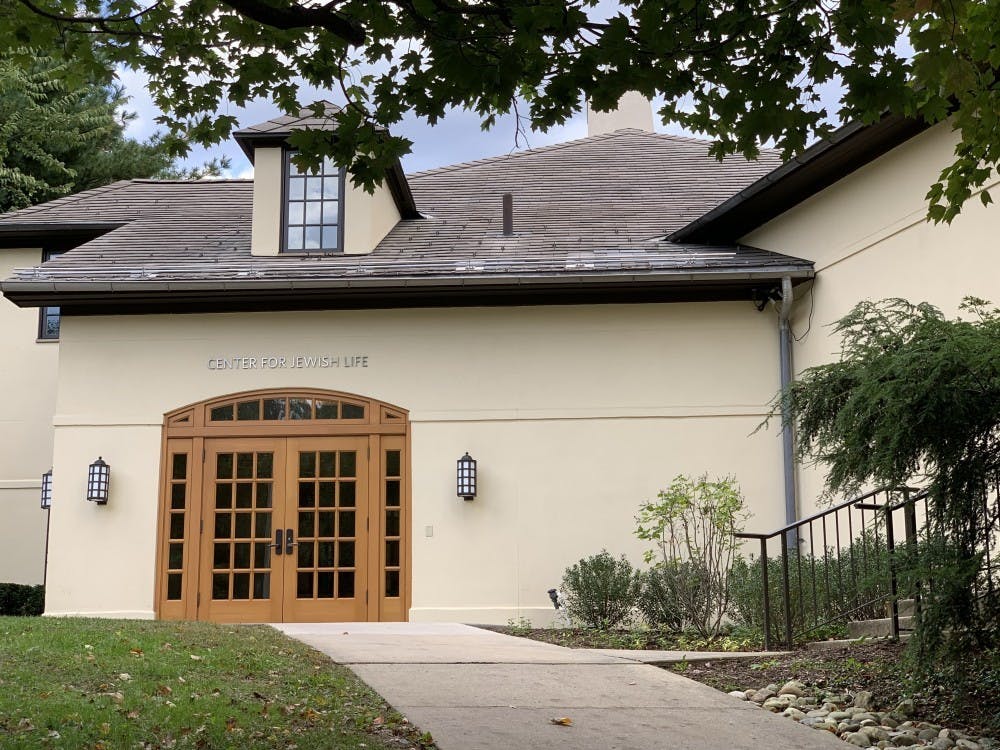David Mendelsohn wrote a column Tuesday about his interpretation of the meaning and outcome of this event. He concluded that while well-intentioned, we did not need to stage such a public spectacle to try to, as he put it, “reduce the anxiety anorexics have from fear of being fat.” He went on to say that the ECAs should avoid “the muddled realm of social engineering” and focus on one-on-one counseling instead of widespread awareness. However, his conclusion is indicative of a widespread cultural belief that keeps fat talk alive — the notion that fat talk does not affect people who are not diagnosed with an eating disorder. As an ECA with training from University Health Services, I understand that anorexia nervosa is not fixed by buttons and compliments. But there are many people who are at risk for disordered eating who many never be diagnosed. They are the ones who are affected by those off-color comments about weight. No Fat Talk Week was for them.
The basic idea is this: We do not have the right to mock someone because we have an opinion on what their body should look like, and we should view our own bodies through the lens of what our bodies do for us and not how they deviate from some standard of beauty. The idea is to realize that creating a culture that shames people who put on weight as if they have committed a crime is unproductive, and as Miriam Geronimus discussed in her column Tuesday, we need to get away from moralizing something as superficial as the size of your body.
The intention was not to enforce political correctness, as some people complained, but to make students consider the effects of their words. Here at Princeton, we can get into a mindset in which we feel the need to correct any percieved flaws in the people around us. The notion that that it is actually our duty to police other people’s bodies seems shaky to me at best. The fat talk we are targeting is not about health. Saying “she looks fat in that dress” does not sound like genuine concern to me, and the fact that so many people reacted viscerally to the idea of going one week without defining people by their weight proves that we need to shake society’s dependence on this kind of talk.
In a culture in which we are all expected to put on the veneer of total confidence and control even as the stress piles up on us, it is often impossible to know how much our words affect others. As an ECA who has met with a few students over the last couple of years, I know firsthand that people stuggle silently with these thoughts under their shiny Princetonian facade.
Some people have smugly pointed out that No Fat Talk Week has increased the utterances of the word “fat” on this campus manyfold, but I think that is great. The week was not about putting tape over our mouths, it was not about talking people out of eating disorders, and it definitely was not about consoling people who have abused their bodies. It was meant to encourage ostensibly average people to reflect on how they speak about others’ bodies or view their own body. It was meant for the person who stands in front of the mirror and pinches any skin she can grab and tells herself she’s fat because she can’t fit into a certain size or the person who is nervous about a presentation because he’s self conscious about the weight he has put on during the school year.
The take-home message is that no matter which direction your weight goes in, you are still you, and no one should be telling you otherwise. If you feel like going to the gym, go. If you feel like having two dinners, have them. If you feel like eating one thing over another, go for it. When “everyday rhetoric,” as David calls it, consists of debasing people based on their body, I don’t think it’s too much to ask us to at least reconsider our use of that rhetoric. We should take care of our bodies the best we can and remember that pounds don’t make us more or less loving, interesting or smart, and our value is not inversely proportional to our pant size.
Sophia LeMaire is a mechanical engineering major from Longmeadow, Mass. She can be reached at slemaire@princeton.edu.







